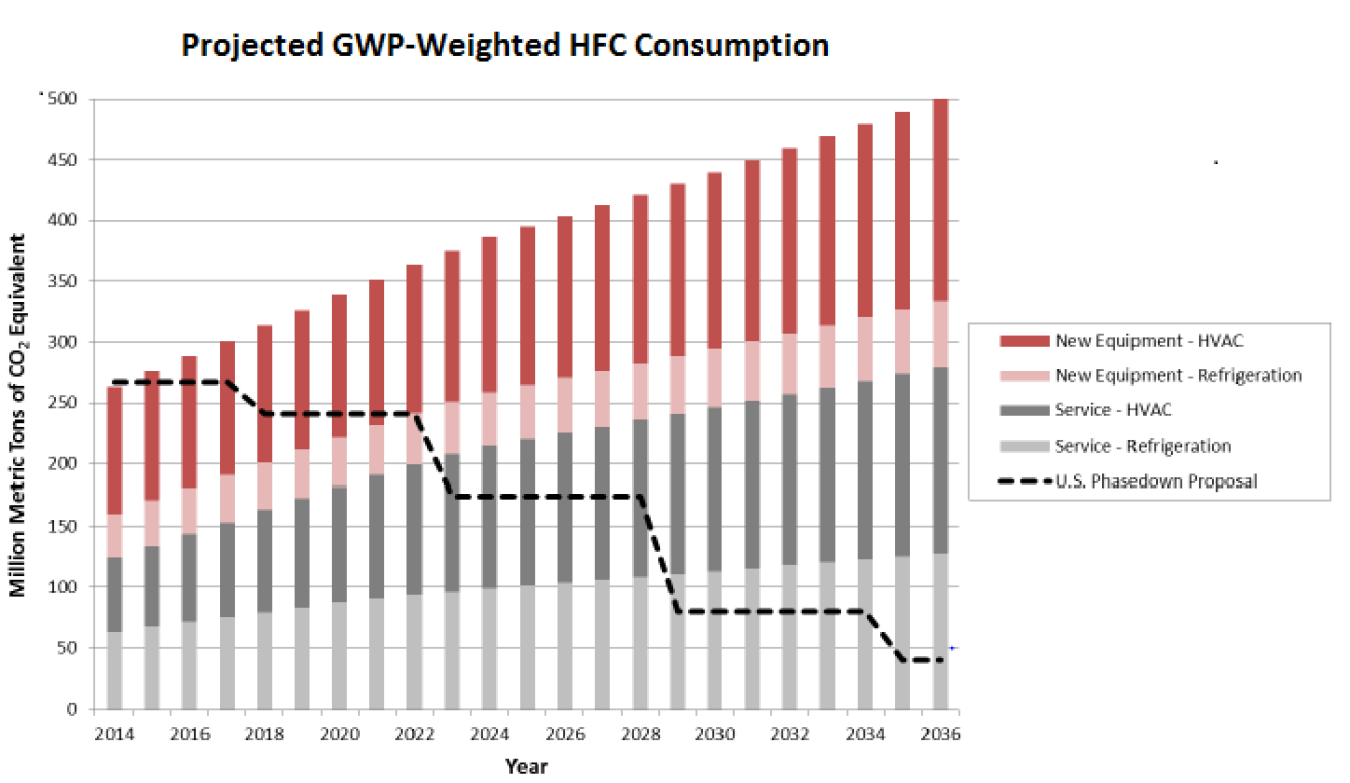BTO convened two workshops to discuss the potential launch of a major research effort for advanced HVAC&R technologies.
January 15, 2016
The planned research effort would support the U.S. hydrofluorocarbon (HFC) phasedown proposal, which targets an 85% reduction by 2035 compared to a 2014-2016 average baseline.
The Building Technologies Office (BTO) recently convened two workshops to discuss the potential launch of a major research effort for advanced HVAC&R technologies. DOE’s goal is to develop next-generation heating and cooling technologies that leapfrog the existing vapor compression solutions and result in dramatically improved efficiency while utilizing near-zero global warming potential (GWP) refrigerants or non-vapor compression approaches. To achieve this type of transformative progress will require a large, coordinated, and interdisciplinary approach. The two workshops were organized to solicit input from stakeholders regarding the needed technical focus as well as the overall structure and approach for the planned research effort.
The first workshop to discuss the initiative was held on November 17, 2015 in conjunction with the American Society of Mechanical Engineers’ (ASME’s) International Mechanical Engineering Congress and Exposition in Houston, Texas, and the second event was hosted by the American Society of Heating, Refrigerating, and Air-Conditioning Engineers (ASHRAE) in Atlanta, Georgia, on December 8, 2015. Approximately 100 people representing a wide range of stakeholders—including manufacturers, national laboratories, and universities—attended the workshops.
“The research effort envisioned by the Building Technologies Office supports the HFC (hydrofluorocarbon) phasedown proposal made by the United States, which targets an 85% reduction by 2035. While BTO is currently funding several R&D projects in this technology area, we strongly feel that a more robust and sustained effort is needed to ensure we achieve our aggressive goals. These workshops are an important mechanism in engaging stakeholders into our planning process,” explained Tony Bouza, HVAC, Water Heating, and Appliances Technology Manager with BTO.
“BTO’s research initiative on low-GWP refrigerants is much needed. The HVAC&R industry is now focusing on the use of promising low-GWP refrigerants that are slightly flammable, and is committed to providing resources for a collaborative research effort that will look at how to safely use these refrigerants. We are ready to collaborate with the BTO to help fund this important research and the workshop created an open channel of communication between the BTO and the industry to start the process,” said Dr. Xudong Wang, director of research at ASHRAE.
As the next step toward launching the research initiative, BTO intends to release a Request for Information (RFI) in the spring of 2016 to solicit input from those stakeholders who were not able to attend the workshops. Pending availability of funding, the workshops and RFI may lead to a future Funding Opportunity Announcement (FOA).
Presentations from both workshops are available on the BTO website.

